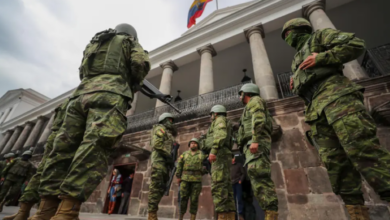What happened to the Nicaraguan Interoceanic Canal?
Listen this article
How does a multibillion project that could impact the world’s economy go to obscurity without anyone caring? We’ll have to ask Wang Jing, the Chinese businessman who, supposedly, would try to build the Nicaraguan Canal. In theory, the canal would slice the southern part of the country allowing the passage of bigger vessels, in comparison to the ones that go through the Panama Canal.
It was back in 2012 when Wang Jing proposed the project to Daniel Ortega, the president of Nicaragua. Ortega stated that the Canal would reduce unemployment and double the country’s GDP. However, as anyone could predict, the process for them to carry on with the construction –which included expropriation and rigorous law making– would imply bigger human and natural costs than expected. Economists and activists strongly criticized the project, since, at the end, it would hurt the country’s resources and it wouldn’t have the economic benefits that Ortega promised.
Despite fast-tracking special laws for the project, after four years, it’s clear that the Canal is closer to its demise than to its realization. The cost for the construction –US$80 billion– was among the obstacles for Wang’s plan. As time passed, Nicaraguans and people interested in the Canal realized that, perhaps, Wang wasn’t the man for the job. Not only his net worth decreased to a tenth of its original value –it went from US$10 billion to US1.1 billion– but he had almost no experience in the construction sector to begin with.
Aside from the unrealistic budget, the Chinese businessman also had to deal with protests from environmentalists and Nicaraguans that were unsure about the conditions that surrounded the deal. The public had its doubts about what would be done with the half a million people that needed to be displaced. Certainly, leaving a tenth of the population without a clear future affected the project's possibilities.
While the Panama Canal had major improvement a year ago, the Nicaraguan Interoceanic Canal didn’t even start. Construction doesn’t exist, the government doesn’t even talk about the subject, and the Chinese economy doesn’t need any new commercial routes. While some may see this as bad news, Nicaraguans can thank that Wang Jing didn’t make any further advances. Some media outlets mention that the Law 840 –specially passed for the construction of the Canal– gave Wang and his descendants the rights over the Canal until 2129.
In this rare case, no news is good news.
LatinAmerican Post | Juan Sebastian torres
Copy edited by Susana Cicchetto





